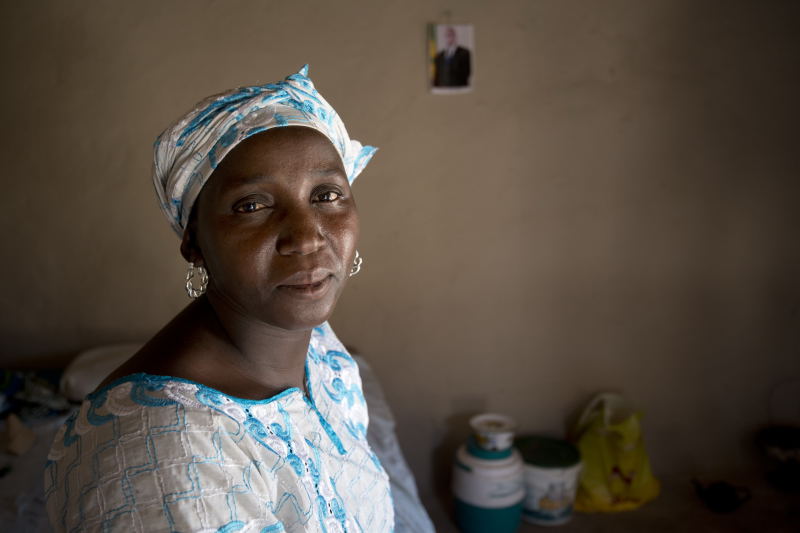Farmers build a new safety net in the Sahel

Eastern Senegal is hot and dusty in May. The wind swirls into spiraling dust devils, stirring up the dirt and dead leaves, whirling drunkenly through the bush before disappearing up into the clear, cloudless blue sky. The inescapable heat feels like opening up a hot oven, when the heat blasts into your face. Except it’s like that all day, and you can’t ever close the oven door.
In Tambacounda, at a small village called Kalbiron, farmers are nervously awaiting the rains, preparing their fields, and thinking about the growing season. After they amass their savings, borrow money, and plant the seeds they saved from the last harvest, few will have much left over to get them through the growing months.

They call it the lean time.
“From now until the crops are harvested, it is so difficult, the lack of food,” says Karyalla Ndao, an elderly grandmother now too old to work in the fields.
“We need food,” she says, “it would be easier to work in the fields with food.”
Farmers here are worried. Many are still recovering from a terrible food crisis in 2011-2012. But in any year, after committing all their resources into growing maize, millet, rice, and groundnuts, all it takes is a few weeks of dry weather or an insect infestation to kill everything. Then what? Oxfam and our partner in Tambacounda called La Lumière helped women in Kalbiron start a Saving for Change group a few years ago. Members of these groups now have a source of cash for emergencies, and capital to start small side businesses for extra income. There are five groups there now.
A middle-aged woman named Binta Ndao tells me that she and her husband grow sesame as a cash crop. Last year they got a decent sesame crop but did not clear enough money to make up for a poor millet and groundnut yield. They count on these food crops to feed their seven children.

“We had to find money elsewhere to buy food, rice and millet, for the family,” She says. Ndao buys and sells onions for extra cash, financing this with a loan from her Saving for Change group, and uses her savings to buy food when needed.
To further assist farmers here, Oxfam and the World Food Programme, La Lumière, and several other Senegalese organizations are just starting a program to help the farmers reduce and spread out their farming risks. One of the local partners has helped organize people in Kalbiron, including the women in Saving for Change groups, to build erosion control barriers out of volcanic stones, to help cut down on flash floods in heavy rains and improve the quality of the sandy soil.

Kalbiron is the one of the first sites in this expanding program in Senegal; it’s called the Rural Resilience Initiative, which Oxfam first established in Ethiopia in 2009 to help communities affected by climate change. It combines access to credit, the projects to reduce risk of climate-related disasters (such as erosion barriers), insurance, and the Saving for Change program to create a safety net for farmers.
It’s June now and the rains should be starting in Tambacounda. I’m hoping the farmers have a good growing season, and that they can be a little less nervous in the knowledge that they have something to fall back on if all the variables stacked against their farming don’t work out perfectly.